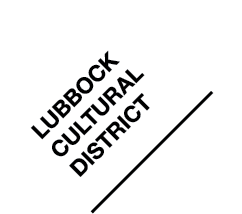january, 2021
NATIONAL RANCHING HERITAGE CENTER (Copy)
Event Details
NATIONAL RANCHING HERITAGE CENTER AT TEXAS TECH UNIVERSITY 3121 Fourth Street 806.742.0498 Mon-Sat 10 am – 5pm Sun 1 pm- 5pm Park closes at 4 pm every day. Experience the real West. The
Event Details
NATIONAL RANCHING HERITAGE CENTER AT TEXAS TECH UNIVERSITY
3121 Fourth Street 806.742.0498
Mon-Sat 10 am – 5pm
Sun 1 pm- 5pm
Park closes at 4 pm every day.
Experience the real West.
The NRHC is a museum and historical park located on the Texas Tech University campus. 48 historic ranch buildings and exhibits from the late 1700’s to the early 1900’s. Buildings include a cattle baron’s home, ranch headquarters, dugouts, bunkhouse and a one-room school house that have been moved from their original location and restored at the museum.
Entrance to the historical park will open each day at 10:00am and close each day at 5:00pm.
The outdoor historical park closes at 4:00pm.
The NRHC will be closed for all Texas Tech University holidays as well.
There is no admission fee, although donations are accepted.
The NRHC offers one 30-minute trolley tour of the historical park each Thursday at 10:30am from April through October at a cost of $5.00 per person. Tours will be cancelled during bad weather. Rides on the 21-seat trolley will be provided on a first-come, first-served basis. Trolley tickets are available for purchase in the NRHC gift shop.
Please visit our website at www.nrhc.ttu.edu for additional information and a complete list of special events and programs.
CURRENT EXHIBITS – NATIONAL RANCHING HERITAGE CENTER: –
McKanna Gallery
Life in the Saddle: A Selection of Oral Histories
The NRHC has an Oral History program that has collected stories and histories from a variety of people involved in the cattle industry. These stories range from the life stories of working cowboys to ranch managers to ranch owners. This exhibit features a selection of stories of people who have spent a lifetime owning and managing ranches – stories that illustrate what it takes to guide a ranch through both good and bad times.
Cash Gallery
“Beef Cattle Breeds History Exhibit” Visitors to the exhibit will discover that Christopher Columbus brought the first cattle—Spanish Andalusian—to the Americas during his second voyage to the Caribbean Islands in 1493. In the Southwest, Spanish Andalusian cattle later became known as Texas Longhorns. Shorthorn cattle were imported to the eastern United States as early as 1783, followed by Herefords in 1817 and Angus in 1873.
“The exhibit emphasizes the timeline of the industry over the past 300 years,” explained exhibit co-curator Julie Hodges, Helen DeVitt Jones Director of Education at the center. Hodges worked with Dr. Ryan Rathmann, associate professor in the Department of Animal and Food Science at Texas Tech University and holder of the John W. and Doris Jones Professorship.
“This exhibit is a unique collection of historic photographs, life-size models of cattle and interactive kiosks that will give our visitors a hands-on experience,” Hodges said. Funding for the exhibit was provided by the CH Foundation, and resources for educators will be available on the center’s website at nrhc.ttu.edu.
“While the culture that surrounds ranching has captured the hearts and minds of people from around the world, ranching at its base has always been about providing food and fiber—especially beef—for a growing population,” Hodges said.
McCombs Gallery
This exhibit features paintings from the collection of Roland and Joyce Jones, who are avid collectors of Western Art. Roland and Joyce Jones began collecting contemporary Western Art in 1971 and have accumulated one of the finest personal art collections in the country. Longtime supporters of the Bosque Art Center in Clifton, Texas, Roland and Joyce have helped many of today’s well-known artists gain recognition for their work.
Macy Gallery
Guns that Won the West
Firearms have been featured in Westerns on TV and on the Silver Screen for decades, but they tend to focus on “six-shooters” and lever action rifles. There is much more to the story of the American West than a couple of types of firearms.
This exhibit features 22 firearms that played a significant role in the shaping of the American West be it providing settlers with a means of putting food on the table, criminals plying their trade, people seeking personal protection or the great buffalo hunts. The firearms in this exhibit come from the collections of the NRHC, the Museum of Texas Tech University, the J.M. Davis Arms and Historical Museum, the National Cowboy and Western Heritage Museum, the Fort Concho National Historical Landmark and the personal collection of Jason Schubert.
Flores Gallery
John Montford Spur Collection
This exhibit features a selection of spurs from the collection of spurs that John Montford donated to the NRHC many years ago. The Montford Spur Collection covers a wide range of spurs, and this exhibit focuses on the most interesting or significant spurs from the collection. Spurs featured in the exhibit range from simple iron spurs to gleaming pairs of decorated spurs.
Stevens Gallery
“The Model T” was not the first car that Ford designed and manufactured, but it was the fulfillment of a dream. Ford had designed and built cars that were bigger and more luxurious, but Henry Ford had long sought to make a car that was cheap, reliable and easy to own; a car that could be bought and maintained by people of modest means.
Burnett Gallery
“Burk Burnett Bedroom” is a permanent NRHC exhibit with items donated by Samuel Burk Burnett’s great-granddaughter, Anne W. Marion. Burnett was one of the most well-known and respected ranchers in Texas. This exhibit space duplicates one of 11 bedrooms in “the big house” at the Four Sixes headquarters.
History of the National Ranching Heritage Center:
http://www.depts.ttu.edu/nrhc/about/history.index.php
Proctor Historical Park
http://www.depts.ttu.edu/nrhc/Exhibits/proctor.php
Devitt Mallet Museum
http://www.depts.ttu.edu/nrhc/Exhibits/devitt.php
J.J. Gibson Memorial Park
http://www.depts.ttu.edu/nrhc/Exhibits/gibson.php
Time
Year Round (2021)
Location
NATIONAL RANCHING HERITAGE CENTER
3121 4th Street, Lubbock, TX
